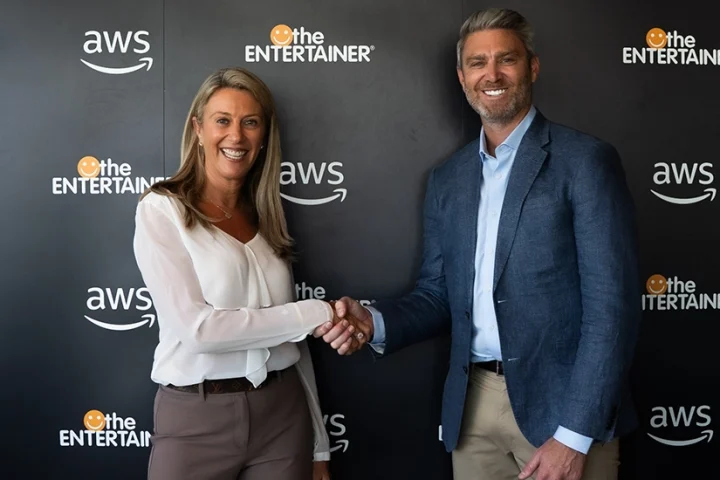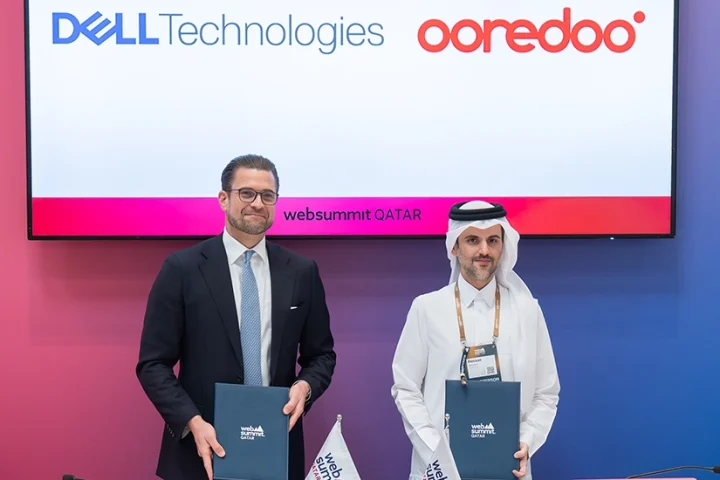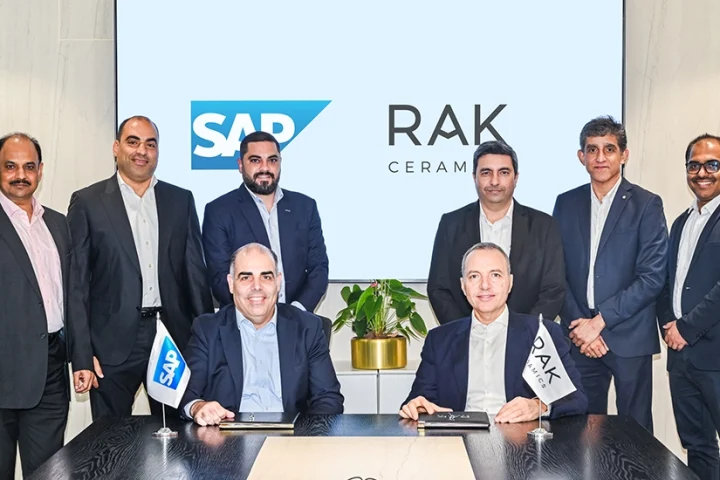Competitive pressures and disruptive forces have changed the rules of the game in many industries. Scalability and agility have become pivotal. The travel industry is no exception: the legacy travel model is being replaced by digital entities with disruptive business models and wider partnerships. There has been a seismic shift in the way people procure their travel toward digital channels, transparency in pricing, ease to benchmark, ease of use, breadth of offers, and partnerships.
Seera established in 1979 is the leading provider of diverse travel services in the Middle East. The Tadawul-listed holding did not have an extensive online presence until 2015. Given the shift in buying patterns toward digital channels, the company decided to push aggressively toward an online model in order to stay relevant in the market. The decision to move toward a cloud model for its online entities Almosafer and tajawal was based on fundamental factors of cost, scalability, and security. In 2015, Seera’s management team decided to respond to the shift away from legacy travel models.
The decision to be made was whether to use a cloud model or to leverage and build up Seera’s existing legacy infrastructure to support its online business. Based on its criteria, Seera’s board and new management decided to adopt a single-vendor cloud strategy to support the birth and expansion of its online brands. Seera conducted due diligence and found that the public cloud model would reduce costs, support rapid growth across the region, and support the company’s key big data initiatives. All this was achieved without undermining the critical security and privacy of data.
The choice Seera faced with moving to a new digital business model was whether to draw on internal resources and build a state-of-the-art data center or go directly to the cloud. The overwhelming view from the board of directors and management was that cloud was the better option. A cloud service would deliver on the four main criteria that the company planned to benchmark: scalability, decentralisation, security, and cost-effectiveness. The scalability factor was critical given the seasonal nature of the travel business. A cloud strategy was the preferred option with the board and management, and there was no need to canvass buy-in from stakeholders.
Seera’s board of directors was concerned about the issue of data residency and privacy. Incountry data residency is not yet mandated by law in Saudi Arabia. But Seera needed to consider the implications in case there is a future change in requirements, given it was leveraging AWS regions in Frankfurt and Dublin.
AWS was the cloud service provider of choice for Seera. Ovum’s data ICT Enterprise Insights 2018-19 shows AWS as the number one public cloud provider in the Middle East, with nearly 40% of respondents stating they run more than 20% of their workload in AWS.
The approach Seera adopted was straightforward. It wanted to partner with the leader and an established service provider in the Middle East. That made the decision to go with AWS obvious. Seera found that AWS was by far the leader in the region at the time and had the largest set of enterprise customers.
At the time, Seera found that Microsoft Azure did not have enough presence in the Middle East, and Google targeted a different segment of the market and also did not have much of a presence. Seera was not able to make price comparisons, because AWS’s rivals did not offer the same level of services. The only alternative option it could compare for ROI was building its own data centers. The overall cost savings expected and achieved are in the range of 35% to 40%, which Ovum believes is on a par with or slightly ahead of the industry average.
Cloud migration
The rollout and implementation went quickly and smoothly. Seera hired a new team for this project, since its existing IT resource did not have enough cloud, AWS, or DevOps experience. In the early stages, it relied heavily on AWS online tools and resources. As the consumer travel division of Seera grew rapidly, with annual net book value reaching over SAR2bn, $530m by 2018, Seera’s activity and consumption caught the attention of AWS, which approached the company directly to offer guidance and support.
Seera has leveraged AWS platform to build an enterprise-wide big data architecture, which it will use for predictive analytics and machine learning to curate future offerings that match the expectations and demands of its customers. These analytics plans are core to Seera’s founding principles of customer centricity. The company will strive to build products and services that directly meet the needs of its customers. The big data platform stores both structured and unstructured data, which includes all travel-related searches by its customers on travel on social media, all interactions, transactions, HR, procurement, and other sources.
Seera chose AWS because of its high levels of security, its broad and deep portfolio of cloud services. In less than six months, Seera migrated 70+% of its mission critical applications to AWS and adopted a microservices architecture to increase agility. The group worked with AWS to re-architect its technology stack, which includes moving Seera’s legacy application development process to Amazon Elastic Kubernetes Service, Amazon EKS. This enabled Seera to develop new products and services quickly and at scale, allowing the group to be more agile and responsive to customer needs across all vertical businesses, including its consumer travel brands Almosafer and tajawal.
Seera uses Amazon EKS to manage more than 1,000 containers in production. As a result, the business has seen a 65% improvement in application performance, including faster response time for customer search results. Prior to this move, some customer holiday searches on Seera’s online booking platforms were taking approximately five to eight seconds to produce results, now customers get results in under two seconds.
Benefits and gains
Seera also relies on AWS data analytics services to quickly and cost-effectively analyse data gathered from travel related searches, customer interactions, transactions that have been executed, and other sources. It took the group less than four months to build a sophisticated data analytics platform that connects over 20 data sources, using services such as Amazon Redshift. This platform has helped the company optimise marketing costs and as a result reduced the cost-to-revenue ratio to less than 10% this year.
Seera believes this platform will help give the company an edge as it harvests the data to understand where customers are going or are interested in going. This allows the company to customise its products and services to meet constantly changing needs and demands. Seera has set up its own team of data scientists to design real-time analysis tools that ultimately personalise the experience for every single customer, whether through its app or online.
Seera has also been able to carry out targeted marketing campaigns that led to improvements in sales and optimisation of marketing costs. It has been able to reduce its cost-convert-to-revenue, ratio to less than 10% this year. This is an internal benchmark the company uses to gage the effectiveness of reaching out to new customers, to support and scale up quickly and meet all the demands, and to avoid losing potential revenue.
Seera would like to further leverage AWS to bring all its entities onto AWS under a single unified cloud infrastructure. This will include its businesses serving the public sector, hospitals, and others. Seera plans to develop microservices across its operating entities once it consolidates on a single platform.
Seera also plans to roll out blockchain. This is still at the experimental stage, but it will be largely used to improve working relationships and accountability with all its suppliers. The plan is for Seera to work with AWS on emerging and complex technologies. Finally, the company plans to improve its AI-chatbot capabilities for a better customer engagement experience.
AWS services used by Seera
- Amazon EC2. This is computing capacity in the cloud that Seera leverages to support both online portals.
- Amazon RDS. RDS is used to operate and scale databases for Seera.
- Amazon ECS. This is a container orchestration service that Seera leverages as it migrates most of its applications on Docker containers.
- Amazon Redshift. This is a data warehousing service that powers up and stores all the mission-critical workloads for the online portals.
- Amazon EMR. The open source framework is used by Seera to analyse the vast amount of data that it stores and collects daily to support decision-making.
- Amazon CloudWatch. This is used by its IT team to monitor applications and infrastructure to ensure all are running optimally.
- Amazon S3. Seera stores and protects its vast amount of data on S3.
- Amazon IAM. Security remains core to Seera, and Amazon Identity and Access Management is the foundation for its cloud security framework.
Insights
- Seera plans to improve its AI-chatbot for a better customer engagement experience.
- Seera has set up team of data scientists to design real-time analysis tools personalising experience for every customer.
- Seera has reduced its marketing cost-to-revenue ratio to less than 10% this year.
- Seera faced a choice to draw on internal resources and build state-of-the-art data centre or go directly to the cloud.
- The overwhelming view from the board of directors and management was that cloud was the better option.
- A cloud service would deliver on four main criteria that the company planned to benchmark.
- Scalability was critical given the seasonal nature of the travel business.
- Since cloud strategy was preferred option with the board there was no need to canvass buy-in from stakeholders.





















